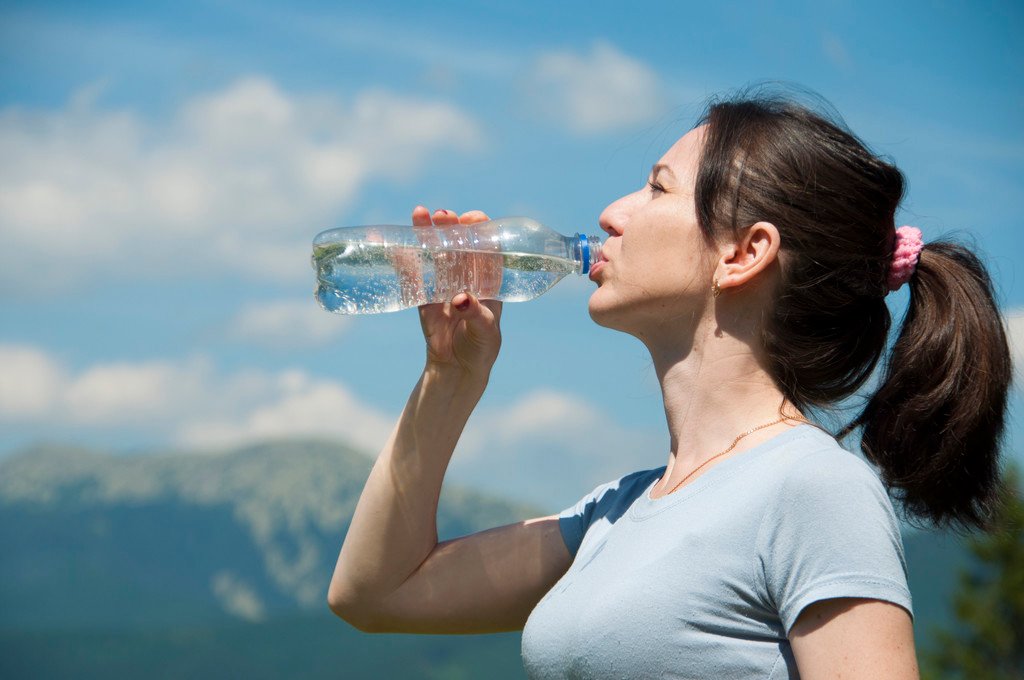Introduction
Who has always been interested in health and wellness, I’ve come across many theories and claims about the factors that can influence our weight. One topic that has piqued my curiosity is the potential link between drinking cold water and gaining weight. I’ve heard people say that drinking cold water can slow down your metabolism or cause your body to store more fat. But is there any truth to these claims? Can cold water really make you gain weight?
We’ll take a closer look at the science behind cold water and weight gain to separate fact from fiction. By examining the available research and consulting with experts in the field, I aim to provide you with a clear and evidence-based understanding of this topic. So, Explore whether cold water can indeed make you gain weight.
The Body’s Response to Cold Water
To understand whether cold water can make you gain weight, it’s important to first look at how the body responds to cold temperatures. When we drink cold water, our body needs to work harder to warm it up to our core body temperature. This process is called thermogenesis and it does burn some additional calories.

The number of extra calories burned through thermogenesis is relatively small. A study published in the Journal of Clinical Endocrinology and Metabolism found that drinking 500ml of cold water (around 16oz) increased metabolic rate by about 30% for 30-40 minutes. But this only amounted to burning around 8 additional calories. To put this into perspective, you would need to drink around 12 glasses of cold water to burn off the calories in a single apple.
So, while drinking cold water does cause a slight uptick in metabolism, it’s unlikely that this would lead to significant weight loss or prevent weight gain on its own. The calorie-burning effect is simply too small to make a noticeable difference in body weight over time.
Cold Water and Appetite
Another theory is that drinking cold water can help reduce appetite, leading to reduced calorie intake and potential weight loss. The idea is that the cold temperature might trick the body into feeling fuller or more satisfied.
However, the research on this topic is mixed. While some small studies have suggested a link between cold water and reduced appetite, others have found no significant difference. For example, a study published in the Journal of Clinical Biochemistry and Nutrition had participants drink either cold or warm water before a meal. They found no difference in subsequent calorie intake between the two groups.
Larger reviews and meta-analyses have also failed to find strong evidence for cold water as an appetite suppressant. A 2013 review published in the Journal of the American College of Nutrition concluded that while drinking water before meals can lead to a modest reduction in calorie intake, water temperature does not seem to affect this.
So, based on the available evidence, it seems unlikely that drinking cold water would lead to significant appetite reduction or calorie intake compared to room temperature water. Individual responses may vary, but overall, cold water does not appear to be a reliable weight loss strategy in terms of appetite control.
Hydration and Weight Management
While the direct impact of cold water on metabolism and appetite may be minimal, staying hydrated in general is important for overall health and can play a supportive role in weight management.
Water helps the body function optimally by regulating temperature, transporting nutrients, removing waste, and cushioning joints. Even mild dehydration can lead to fatigue, headaches, and difficulty concentrating. Chronic dehydration can have more serious consequences over time.

Some studies have also found a link between good hydration and successful weight loss. For example, a 2010 study published in the journal Obesity found that adults who drank 2 cups of water before meals lost more weight over 12 weeks than those who did not increase their water intake.
The mechanism behind this is not entirely clear, but it may be that drinking water helps reduce overall calorie intake by promoting feelings of fullness. Water may also help prevent overeating by maintaining good hydration and preventing thirst from being confused with hunger.
However, it’s important to note that simply drinking more water is not a magic bullet for weight loss. Sustainable weight management requires a balanced approach that includes a nutritious diet, regular physical activity, and other healthy lifestyle habits. Drinking water can be a helpful supporting strategy, but it’s not a substitute for a comprehensive weight loss plan.
Risks of Drinking Too Much Cold Water
While there is no strong evidence that drinking cold water can directly lead to weight gain, there are some potential risks to be aware of when consuming large amounts of cold water or ice.
One concern is that drinking very cold water might lead to headaches or migraines in some people. This is thought to be due to the sudden constriction of blood vessels in the head and neck in response to the cold temperature. While this reaction is not common, it can be a trigger for some individuals who are prone to migraines.

Another potential issue is that consuming large amounts of ice or very cold water can cause discomfort or pain in the esophagus or stomach. This is more likely to occur if you drink cold water too quickly or if you have a pre-existing condition like acid reflux or gastritis. If you experience persistent pain or discomfort after drinking cold water, it’s best to speak with a healthcare provider to rule out any underlying issues.
Drinking excessive amounts of cold water has been linked to a condition called “ice water dyspepsia” or “ice cream headache”. This refers to a sudden, short-lived pain in the forehead or behind the eyes that can occur after consuming very cold foods or drinks too quickly. While uncomfortable, this condition is not typically serious and can be avoided by consuming cold items more slowly.
While there are some potential risks to be aware of, drinking cold water in moderation is generally safe for most people. As with any dietary habit, it’s important to listen to your body and consult with a healthcare professional if you have any concerns.
Alternatives to Cold Water
If you’re someone who enjoys the refreshing taste of cold water but is concerned about potential negative effects, there are some alternatives you can consider.
One option is to drink room temperature water instead. Room temperature water can be just as hydrating as cold water, but without the potential risks associated with very cold temperatures. Some people also find that room temperature water is easier to drink in larger quantities, which can help with overall hydration.

Another option is to infuse your water with fruits, vegetables, or herbs to add flavor without adding calories. For example, you could try adding slices of lemon, lime, cucumber, or mint to your water for a refreshing taste. This can be a great way to make drinking water more enjoyable if you struggle with the taste of plain water.
You could also experiment with herbal teas as a way to stay hydrated. Many herbal teas are naturally caffeine-free and can be enjoyed hot or iced. Some popular options include chamomile, peppermint, ginger, and hibiscus tea. Just be sure to check the ingredients and avoid teas with added sugars or artificial sweeteners.
The best temperature and type of water to drink is the one that you enjoy and will drink consistently. Staying hydrated is more important than the specific temperature of your water, so find a way to make it a pleasant and sustainable part of your daily routine.
Conclusion
While there are some theories about cold water and weight gain, the available scientific evidence does not support a strong link between the two. Drinking cold water does cause a small increase in metabolism due to thermogenesis, but this effect is minimal and unlikely to lead to significant weight changes. Similarly, while some individuals may find that cold water helps reduce their appetite, research has not consistently demonstrated a strong impact on calorie intake or weight loss.
That being said, staying hydrated in general is important for overall health and can be a useful supporting strategy for weight management. Drinking water before meals may help reduce overall calorie intake, and good hydration can help prevent overeating due to thirst being confused with hunger. However, sustainable weight loss requires a comprehensive approach that includes a balanced diet and regular physical activity.
If you enjoy drinking cold water and find it helpful for staying hydrated, there is no need to avoid it based on concerns about weight gain. However, if you experience discomfort or negative side effects from very cold water, you may want to consider drinking room temperature water or experimenting with other hydrating beverages like herbal tea.
At the end of the day, the most important thing is to find a hydration strategy that works for you and supports your overall health and wellness goals. Whether you prefer cold, room temperature, or warm water, the key is to drink enough to stay well-hydrated and support your body’s normal functions. So, while cold water may not be a magic bullet for weight loss, it can still be a refreshing and healthy choice as part of a balanced approach to nutrition and hydration.
Lily Jack
Lily Jack, A passionate Lifestyle enthusiast and a skilled content writer. I have a deep understanding of the Lifestyle industry and I stay up-to-date with the latest Life Hacks and tips.

